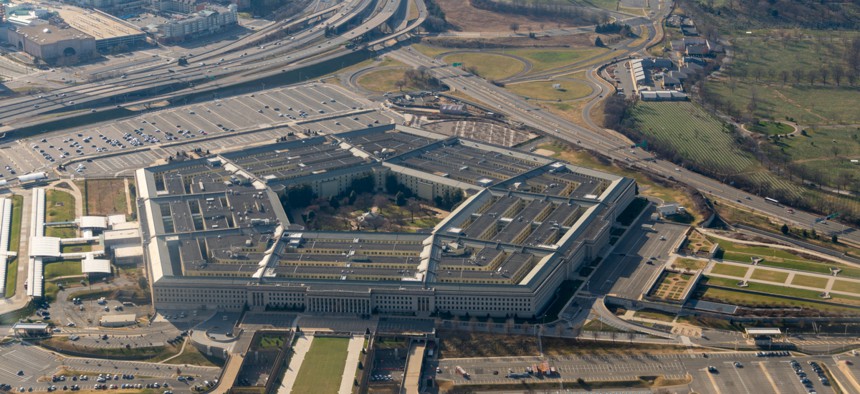AI, Cyber Get Big Boost in Senate-Passed NDAA

Austin Nooe/Shutterstock.com
The legislation would free up some $600 million for AI and cyber research, lock down the federal supply chain and prep the Pentagon for the cloud.
A massive defense policy bill approved by the Senate on Thursday is loaded with provisions to advance the Pentagon’s tech and protect the country against digital threats posed by Russia and China.
The 2020 National Defense Authorization Act, which passed the upper chamber with a vote of 86-8, would direct some $750 billion to fund the Defense Department, intelligence community and national security programs at the Energy Department in 2020. The legislation would authorize hundreds of millions of dollars for artificial intelligence and cyber research, and support efforts to lock down the government supply chain, fight foreign misinformation and bolster the Pentagon’s tech workforce.
Thursday’s vote comes as an early move in what’s expected to be a heated partisan battle over next year’s government funding.
“This is an important bipartisan package that will strengthen our military, support our troops and enhance national security,” Senate Armed Services Committee Ranking Member Jack Reed, D-R.I., said in a statement. “It makes critical investments in emerging technologies and a stronger cyber framework. Clearly, [this] vote does not mark the end of the process, but the beginning of the next phase.”
The House version of the legislation passed out of committee on June 19 and now awaits a vote by the full chamber. Once it passes, lawmakers will work to iron out the differences between each chambers’ respective bills and eventually vote on the reconciled legislation.
The Senate bill includes a number of measures meant to bolster the Pentagon’s cyber and tech capabilities.
Specifically, the legislation would require high-ranking officials to create a roadmap for advancing the Pentagon’s offensive and defensive cyber efforts over the next 25 years and increase congressional oversight of the department’s IT investments. It would also require the Defense secretary to create a framework for bolstering contractors’ cybersecurity and allocate more than $600 million to cybersecurity and artificial intelligence research efforts.
The bill would direct top brass to develop departmentwide guidance for migrating data and applications to the cloud, which would further enhance the military’s AI efforts. The department plans to award their highly anticipated $10 billion enterprise cloud contract to either Microsoft or Amazon sometime in August.
Under the legislation, Pentagon officials would also need to brief lawmakers on their efforts to build transparent artificial intelligence systems and submit a report comparing the AI capabilities of the U.S. and China.
The NDAA also subsumed the Intelligence Authorization Act, which sets aside funds for U.S. spy agencies. As such, the bill would require the intelligence community to devote more resources to combat Russian misinformation and create a special task force to lock down the governments supply chain. The Director of National Intelligence would also need to create a plan to further reduce the security clearance backlog.
The NDAA also includes amendments to improve recruitment and retention efforts for military tech specialists, study new methods to defend the energy grid from cyberattacks and outlaw the purchase of public transit vehicles built by Chinese companies.
“It is the most important bill we’ll consider all year,” Senate Armed Services Committee Chairman Jim Inhofe, R-Okla., said in a statement.






